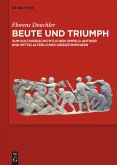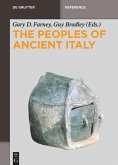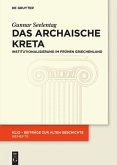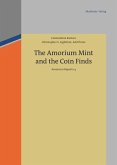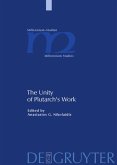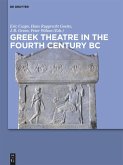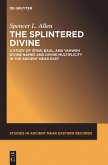this handbook has two purposes: it is intended (1) as a handbook of Etruscology or Etruscan Studies, offering a state of the art and comprehensive overview of the history of the discipline and its development, and (2) it serves as an authoritative reference work representingthe current state of knowledge on Etruscan civilization. The organization of the volume reflects this dual purpose. The first part of the volume is dedicated to methodology and leading themes in current research, organized thematically, whereas the second part offers a diachronic account of Etruscan history, culture, religion, art & archaeology, and social and political relations and structures, as well as a systematic treatment of the topography of theEtruscan civilization and sphere of influence.
?
Hinweis: Dieser Artikel kann nur an eine deutsche Lieferadresse ausgeliefert werden.
?
Hinweis: Dieser Artikel kann nur an eine deutsche Lieferadresse ausgeliefert werden.
"[...] much-anticipated reference work [...] Every chapter offers some new discovery or fresh approach. [...] Etruscology entries generally evince healthy respect for the evidence of ancient authors while maintaining reasonable caution; all relevant chapters present the latest archaeological evidence, a refreshing contrast to many histories that merely repeat literary accounts. This makes the work especially valuable for student readings: laymen are too often exposed only to superficial or outdated views, like the Herodotean tale or the assertion that the Etruscan language has not been deciphered. Here is a reliable antidote for such fictions. [...] In depth of scholarship and the restoration of Etruscan complexity through archaeological interpretation, Etruscology merits frequent consultation. "
Jean MacIntosh Turfa in: Bryn Mawr Classical Review 2018.08.14
"Insgesamt aber haben Nichtspezialisten jetzt keinen Grund mehr, sich nicht auch komparatistisch mit den Etruskern zu beschäftigen. Auch das Studium des frühen Rom in seinem gesamtitalischen Kontext kann durch das opulente Werk wichtige Impulse erhalten."
Uwe Walter in: Historische Zeitschrift 1 (2019), 149-150
Jean MacIntosh Turfa in: Bryn Mawr Classical Review 2018.08.14
"Insgesamt aber haben Nichtspezialisten jetzt keinen Grund mehr, sich nicht auch komparatistisch mit den Etruskern zu beschäftigen. Auch das Studium des frühen Rom in seinem gesamtitalischen Kontext kann durch das opulente Werk wichtige Impulse erhalten."
Uwe Walter in: Historische Zeitschrift 1 (2019), 149-150


